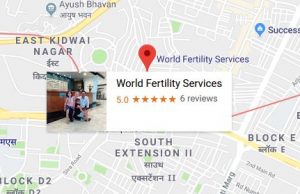What is causing infertility among women as young as 25 years? Are women’s lifestyles and various work and personal life stresses taking a toll on their reproductive health? We examine this closely.
A fertility expert in Delhi, recently decided to conduct a small survey among 100 women. The idea behind the survey was to find the age groups among women facing fertility issues.
The results were staggering – fertility problems are hitting women even in their 20s. Lifestyle choices, stresses, and erratic working hours are seemingly the reasons for a dip in fertility. Interestingly, men have also been found to report lower sperm counts among the younger age groups.
Excerpts from an interview with WFS :
What is the sample size you considered while doing the survey?
We wanted a minimum sample size of 100 women. Our current sample size of the study is 123 women.
Where was the survey conducted?
The survey was conducted in the Dynamic Fertility
What is the age group and general profile (background, occupation, lifestyle) of the women who were part of the survey?
The age groups were, less than 25 years: 23 women; 25 to 29 years: 18 women; 30 to 34 years: 33 women; 35 to 39 years: 36 women; more than 40 years: 14 women.
What is the reason for the dip in fertility potential of Indian women?
The reason is that many women come [for diagnosis] late after, the age of 35 years, as they are reluctant to admit to a serious fertility problem. The reason for the dip in fertility among younger age groups is not well known as of now, but it is believed to be a combination of modern lifestyle combined with erratic working hours, plus stress and environmental toxins, along with some genetic component.
Does a dip in fertility make it difficult for a woman to conceive?
Yes certainly, it may also increase the risk of abortions and miscarriages.
Traditionally, Indian women are perceived to be more fertile than their Western counterparts. Why is this so?
Because of a healthier lifestyle Indian women used to follow – no drugs, alcohol, smoking and eating fresh, home cooked food. But these days, increasing western influences are changing the lifestyles of Indian women.
What is the treatment for women with low fertility?
There is no medication for this, as no medications can change the quality of a woman’s egg. Medications like growth hormones, steroids like DHEA and alternate therapies like scupuncture are supposed to be of minor help.
In terms of percentages, how much would you say is the dip in fertility in Indian women in the past five years?
I would say there is an approximate 30 per cent dip, although it’s not easy to quantify exactly.
Do you have any data or research pertaining to men’s fertility?
There is evidence of reduced fertility all over the world, due to which the WHO has given revised guidelines for male sperm analysis – a sperm morphology of 4 per cent and above was considered to be normal and now even 2 per cent is accepted as normal.
What should women do, in the present scenario?
Based on the study we recently conducted, my sincere advice to all my colleagues and friends is that all women should undertake a fertility test for ovarian age such as the AMH test irrespective of their age. This will help doctors pick up low AMH patients and hence early intervention can help them. The added benefit of early intervention is that it gives patients a chance to conceive a child using their own eggs.
Source : http://goo.gl/sMqO1S



 WhatsApp us
WhatsApp us